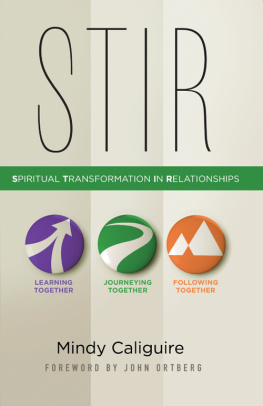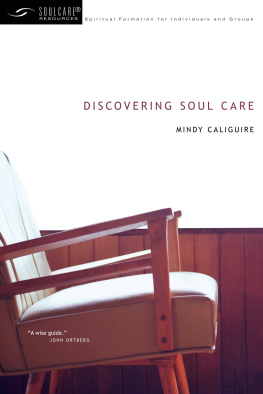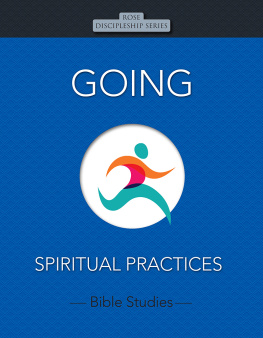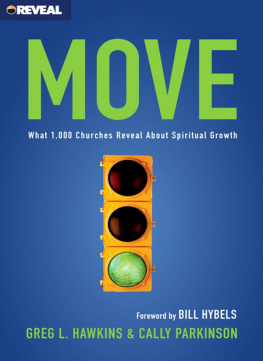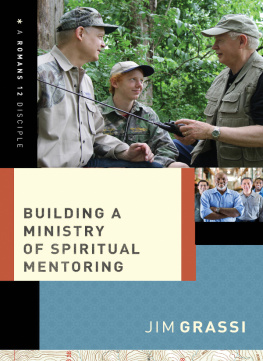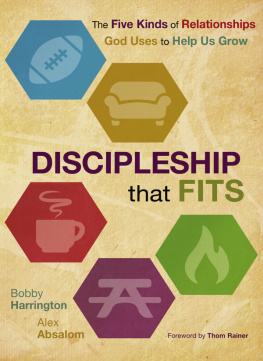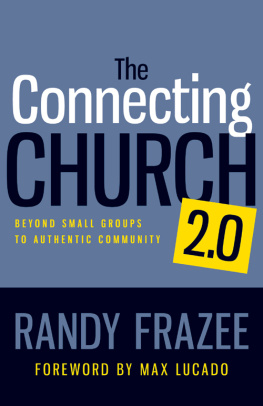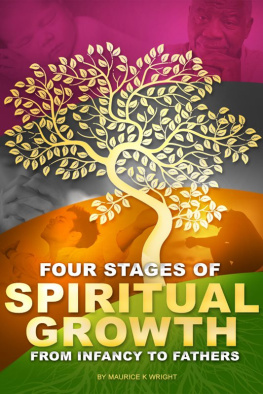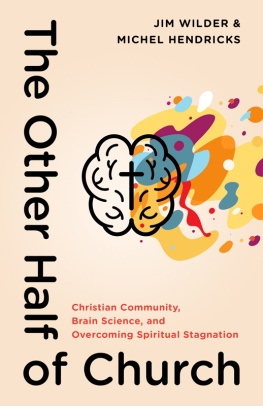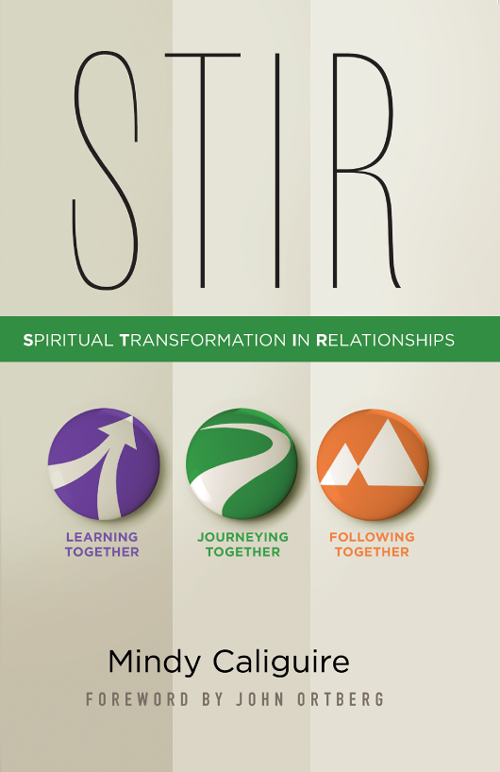I t is very hard to take care of something if you dont know how it works. Not being the mechanical type, I have been responsible for the deterioration of everything from furnaces to lawn mowers to cars, based on that one simple principle.
We are bombarded every day by messages about caring for all the parts of our bodies. Diet books routinely dominate the how-to bestseller lists; exercise videos range from gentle care to outrageously insane in their intensity of focus; doctors regularly get inundated with prescription recommendations from patients who hear about some medication from an infomercial or Katie or Oprah or Dr. Oz.
Then there is the soul.
If its hard to care for something you dont understand, its even harder to care for something youre not sure exists. We live in a society that has perhaps never paid more attention to our outer being and never paid less to our inner being. But the soul will not go away. If it is neglected or abused or ill-treated or overwhelmed, it is life in its wholeness and fullness that gets shattered.
This is the condition that Mindy Caliguire seeks to remedy. She writes as one who cares deeply about the soul. She has not just read and thought about it; she has been actively engaged on the front lines of church ministry to seek to discover how real people can learn deep wisdom and bring healing and vitality to the fractures and fissures of their minds and hearts and wills. She also writes as a wife and a mom who seeks this learning in the middle of all the fullness of family life and contemporary demands.
The soul, although full of mystery, is not meant to be confusing. It can be damaged by forces we all understandignorance, falsehood, pain, andabove allsin. It can be healed only by a power greater than ourselves, but that does not mean we are passive. The Bible is filled with descriptions of the means of grace by which our souls can be restored. Deep fellowship with other people, habitaltering times of solitude and silence, acts of generosity and days of servanthood, and lives of simplicity and celebrations of joy are all described here in a way that is accessible and winsome and magnetic.
The law of the LORD is perfect, refreshing the soul, wrote the psalmist many centuries ago (Psalm 19:7). That does not mean legalism refreshes the soul. But it does mean that understanding how God created life to work can be the beginning of hope. When that understanding begins to be applied, when we respond in faith by actually offering our time and our bodies and our thoughts for renewal, we are surprised to find that we meet Another. We step into a reality where our souls can be cared for from beyond ourselves. Jesus is there. And the soul finds its worth.
May the reading of this book be a journey to the center of your soul, and then a journey infinitely greater than that to the Maker and Redeemer and Lover of your soul.
John Ortberg
A mong the first things I did to launch my ministry, Soul Care, was to exhibit a new line of prayer journals at the annual must-attend event for Christian retailersthe Christian Booksellers Association convention. This event, I was told, was the place to make my debut.
With an existing customer base of ten independent bookstores and the boundless enthusiasm of a new entrepreneur, I signed up for the event well in advance, eager to prove I was really serious about this. A few months later, I packed my bags and quirky display and headed to the big timethe ten-thousand-square-foot convention center in Orlando, Florida. I knew this was an important step, and I couldnt wait to see what God might have for me.
I was so excited the first day of the convention that I arrived at the earliest possible time to begin setting up my eight-by-eight-foot booth. In comparison to the palatial booths of most of the other exhibitors, my booth might better have been called a hovel. But it was mine, and I was determined to make the best of it.
As I set up my 0.0008 of the exhibit hall, I discovered yet another indication that I didnt quite belongand perhaps it was an indication that my Soul Care vision might be easily misunderstood. The conference organizers provided a sign for my bootha slim, nondescript white rectangle with ten-inch black letters that read Sole Care.
SOLE CARE
Needless to say, I took down the sign. I wasnt planning on using it anyway. But it made me think about the employees of convention centers who walk on those concrete floors every day, all year long. My feet are sore after just a few days! Maybe all they can think about is the sole of their foot.
But I found another deep irony in the misnomer as well. You see, for many Christ followers, the Christian life, our journey with God on this earth, is a soleas in soloexperience. Even when we are surrounded by family and friends and gather together at well-attended churches, we too often walk the journey of faith alone.
Sadly, we are accustomed to sole care.
NOT THE WAY ITS SUPPOSED TO BE
Have you ever felt that way about your faiththat its just a you-and-God thing? We know that life with God is supposed to involve loving people and being involved in community. But really, who has time for all that fluffy stuff? And why bother when it often seems to result in disappointment at best and a heap of frustration and trouble at worst?
It doesnt have to be this way. Not only is this individualistic pattern of spiritual life something early church leaders never intended; its safe to say they would have found it unimaginable. Consider this description of what was normal for the first generation of Christ followers:
They devoted themselves to the apostles teaching and to fellowship, to the breaking of bread and to prayer. Everyone was filled with awe at the many wonders and signs performed by the apostles. All the believers were together and had everything in common. They sold property and possessions to give to anyone who had need. Every day they continued to meet together in the temple courts. They broke bread in their homes and ate together with glad and sincere hearts, praising God and enjoying the favor of all the people. And the Lord added to their number daily those who were being saved.
Acts 2:42 47
The relationships that marked this community were a reflection of the deep transformation they had experienced as individuals. By Gods design, relationships in this new community increasingly defined them as they laid aside cultural and religious affiliations. In addition, these new relationships produced in them the character formation that would identify them as Jesus own peoplehis unique community.
I believe many Christians today head in a dangerous direction when they neglect these essential relationships and decide they can do without a community that enfolds and nurtures the life of God within them. While some long to have deep, transformational relationships, they may have been wounded in the past and are now distrustful. Ive been on both sides of the wounding, and it is sad and tragic. But isolation is not the solution to our pain. Whatever the cause, whatever pain has wounded us or hurt us, isolating ourselves from the community of Jesus followers can kill off the life of God in us.

